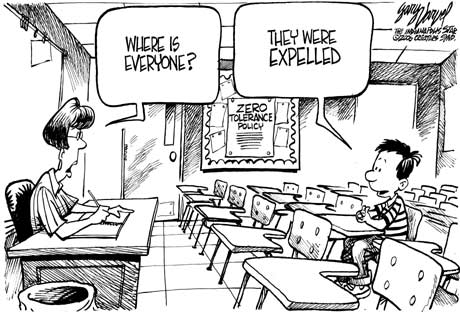Last summer, around the time Andy Murray was winning Wimbledon, a study on the cost of education in Britain was released. The Aviva School Sums index showed that, compared to five years previously, the cost of sending a child to a state school had risen by over six thousand pounds. Assuming a child stays in the state system from the age of four through to eighteen, school now costs £22,500 per child.

While averaging out the cost of lessons on a ‘per child’ basis might upset educational purists (after all, you can’t ‘put a price on education’) it is a fairly useful metric when trying to understand the inverted world of the British school system. If the cost of a nominally free education is rising we need to understand how this effects those at the sharp end of schooling in modern Britain, namely children and their parents. It also allows one to compare state sector schools with their more fancied private (or should that be public?) school cousins. Which is, of course, where things get even more confusing.
Eton College, probably the world’s most famous school, currently charges £32, 000 a year to the families of pupils without a scholarship or bursary (as an aside, roughly 20% of boys at the school receive some financial assistance from the school). One year therefore costs nearly ten thousand pounds more than an educational lifetime in the state sector. Pause for a moment and run that through your mind again. Could this possibly be why private/public schools have such an advantage over their state funded cousins?
Well yes, but money is by no means the whole story. Of course, hard cash will buy you many things. More contact hours, smaller class sizes, better resources, a wider (and less regulated) curriculum, a plethora of sports and after school actives and better paid teachers. However, even without these advantages, a school that can select its pupils based on their academic performance is always going to outshine one that cannot. Public, private and grammar schools all have this advantage. Indeed grammar schools show just how much of an edge selection can give in terms of academic performance, mostly out performing state schools despite not charging any fees. Money can help buy you an education but passing, or being taught to pass, the eleven plus seems to work fairly well too.
Does all of this mean that state schools are simply full of ill educated, unintelligent, no hope cases? No, emphatically not. They’re full of children who haven’t been fortunate enough to be born into a family where paying for school or taking the eleven plus is a possibility. There is a vast swathe of children, from many backgrounds, who are being shut of the upper echelons of British education. This is not just because of the financial and social gulf between the state and private systems but also because they really are two fundamentally different ways of going to school.
While the state sector is a broadly identical, national curriculum driven machine that children can enter at any stage, the private sector operates with a completely different set of rules. If, for example, a child was to enter one of the great British public schools at the age of thirteen he or she would be required to take the Common Entrance, a battery of exams that includes a test of Latin proficiency and a level of mathematical knowledge not taught to most twelve year olds in state schools. In other words, to take the Common Entrance, you already have to be at a private school, where such mysterious subjects such as the past participles of Latin verbs are taught. The private sector then is a bit like the Eurostar, very pleasant and easily assessable if you get on in London but not so inviting if you try to jump aboard in Kent.
How do I know all of this? Because when I was twelve, going on thirteen (in fact, on the day of my thirteenth birthday), I sat the Common Entrance Latin paper. Indeed between the ages of about five and thirteen I spent my days in the warm embrace of the private sector. I was incredibly lucky to have parents, both of whom had been educated by the state, who worked stupidly long hours to pay for my education. You’ll never catch me saying private school did me any lasting damage, it taught me a lot of valuable things and a few Latin verbs as well, but looking back it was a very strange place and I’m fairly sure that moving to the local comprehensive did even more for me. I am at least in the position of being able to judge both systems fairly equally, not as a political or education professional but as someone who enjoyed and endured both. Which is why Michael Gove’s pronouncement last week that he wants state schools to become more like their private sector counterparts and everyone to sit the Common Entrance was deeply confusing. He clearly hasn’t done the maths, because unless the government is willing to invest tens of thousands of pounds per pupil in the state sector then there will always be a gulf in resources and results between the systems. But more than that he seems to have missed the, fairly apparent, differences in how the different school systems in Britain operate and failed to ask, despite their excellent record in sending young men and women to universities and high paid jobs, do we really want all our schools to be mini Harrow and Etons?
